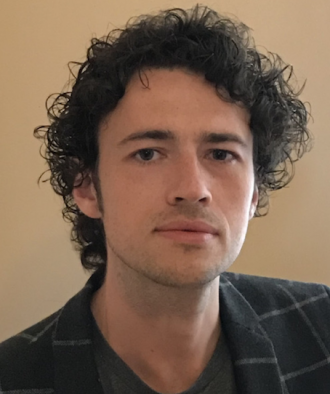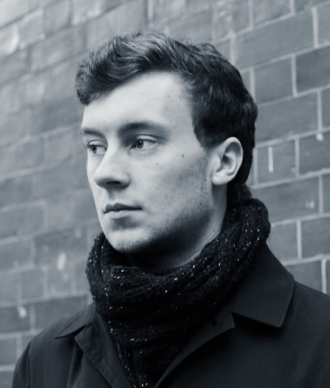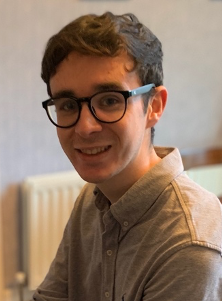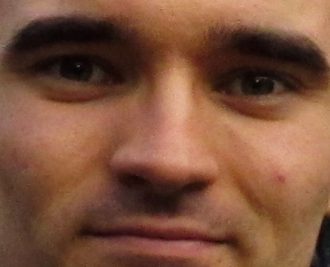Biography
Rory Corbett completed his PhD in the Department of Music in Maynooth University in 2025. For the completion of that degree he was awarded an Irish Research Council Postgraduate Scholarship, and a National University of Ireland Travelling Studentship.. The latter award funded Rory’s archival research in New York, Ohio, Virginia, and Texas in the U.S. in 2022–23. Rory’s doctoral dissertation “A Darker Shade of Green: The Twisted Roots of the Irish Banjo” investigated the cultural symbiosis between Irish and African American musical cultures that culminated in the introduction of the banjo to the blackface minstrel performance idiom by Joel Walker Sweeney and Dan Emmett in the late 1830s and early 1840s.
Research Interests
- Historical Ethnomusicology
- Irish Studies
- Popular Music Studies
- Sociology
- Political Science
- Anthropology
- Irish Traditional Music
- Modern Liminality Theory
Thesis
“A Darker Shade of Green: the Twisted Roots of the Irish Banjo”
This interdisciplinary study investigates the profound, and often troubling, transformation of performance practices and associated sociopolitical discourses connected with the early banjo through the instrument’s intersection with Irishness in the Atlantic world. It traverses the intervening period between Hans Sloane’s documentation of the banjo in Jamaica in 1688 and the introduction of a later version of the same instrument to the Blackface Minstrel Show by Joel Walker Sweeney and Dan Emmet in the 1840s. Key research questions animating the study include: what the banjo’s history can tell us about race, music and power in American history and what the story of historical banjo performance can tell us about the creation of identity for the African and Irish diaspora in the Americas. The related question of how the complexly interwoven histories of the Irish and African diaspora in the Americas in the pre-minstrel era might be interpreted, and discussed when very little direct documentary evidence related to such actually exists is another key concern. As a means of addressing this discrepancy in the historical record, I follow Laura Putnam’s methodology of documenting “collective biographies” by melding individual life histories and community studies to larger macro-Atlantic process (Putnam 2006: 615–630). In addition to this collective biographical approach, I adapt Maggie O’Neill’s creative methodology of supplementing biography/narrative (ethnography) and artistic modes of expression (mimesis) in academic writing as a means of approaching the world and research in a different way (O’Neill 2008; 2009: 289–302; 2012; see also Cantwell 1993). Critical biographies of notable members of the Irish and African diaspora in the Americas that were connected–directly and indirectly–with the banjo’s early history are thus complemented in the study with a parallel analysis of the representation of Irishness/blackness in songs/tunes, literature and other print media from the period.
Professional Development/Experience
Organising Committee Member - the SMI/ICTM Joint Postgraduate Conference in Maynooth University (2024)
Assistant Editor and Web Manager – Aigne, UCC’s Peer-Reviewed Postgraduate Journal (2022-23)
Music Performance Mentor - Northwest Regional College, Derry (2020–2021)
Guest Lecturer - World Music Studies Class, HND Level 5 Northwest Regional College, Derry (2014–2020)
Guest Lecturer - Music and Race Seminar, University College Cork, Cork (2019/2020)
Teacher - Children’s Popular Fiction, DCU’s Centre for Talented Youth, Western Gateway Building, Western Road, Cork (Spring 2018)
Reference Presentations and Publications
Peer-reviewed Articles Corbett, Rory. (in preparation, 2025). “Strum Strumps and Sangamentos: The Banjo in Hans Sloane’s Voyage to the Islands (1707) and the Iberian Substratum in Black Carnival/Masquerade Traditions in the Americas.” Ethnomusicology Ireland 10.
Corbett, Rory. 2020. “‘Backside Albany,’ Trickster’s Spirit and the Axial Moment of Blackface Minstrelsy.” International Political Anthropology: 13(1): 29–47.
Dempsey, John Mark, Rory Corbett and Marc Geagan. 2016. ‘“A Uniting Force”: Irish Music on U.S. Radio’. Journal of Radio & Audio Media 23(1): 123–143.
Reference Presentations
Corbett, Rory. 2021. “The Virginia Minstrels’ 1842–44 British and Irish Tour.” SMI/ICTM-IE Postgraduate Conference.
Corbett, Rory. 2020. “The Twisted Roots of the Irish Banjo.” The Banjo Gathering.
Corbett, Rory, Ellen Scheible, Kathryn Holt, Molly Ferguson, Rachel Nozicka. 2020. “Race and Protest” Panel. Mid-West American Conference for Irish Studies.
Corbett, Rory. 2020. “Crisis and Transition: The Invention of the Banjo and the Reinvention of the Self.” Joint ICTM-IE/SMI Annual Postgraduate Conference, University of Limerick.
Corbett, Rory. 2019. “The Whitening of the Banjo and the Whitening of the Irish in Jacksonian America.” The Irish Association for American Studies Annual Conference, University College, Cork.
Corbett, Rory. 2016. ‘“This Machine Surrounds Hate and Forces it to Surrender”: The Banjo’s Transformation as a Symbol of Oppression in the Nineteenth Century to One of Resistance in the Twentieth’. Drew University Trans-Atlantic Conference, Bundoran, Co. Donegal.
Corbett, Rory. 2015. “How Ulster Helped Shape America’s Ballad Tradition.” Drew University Trans-Atlantic Conference, Bundoran, Co. Donegal.
Corbett, Rory. 2015. “Irish American involvement in Blackface Minstrelsy.” Drew University Trans-Atlantic Conference, Bundoran, Co. Donegal.
Corbett, Rory. 2014. “When Paddy Picked Up the Banjo.” Drew University Trans-Atlantic Conference, Bundoran, Co. Donegal.
Corbett, Rory Mick Moloney, Charlie McGettigan, John Dempsey, Marc Geagan . 2014. “The Emigrant’s Song: The Impact of Irish Music on American Culture” Panel. History Ireland at Drew University Trans-Atlantic Conference, Bundoran, Co. Donegal.
Awards and Scholarships
2023
Maynooth University’s COVID-19 Costed Extension Fund
2022–2023
National University of Ireland Travelling Studentship
2019–2022
Irish Research Council Postgraduate Scholarship
2020
The Donegal County Council Artists’ Bursaries Scheme
2018–2021
UCC PhD Excellence Scholarship
2017–2018
UCC Masters Excellence Scholarship
Membership in Professional Associations/Affiliations
Member of The Society for Ethnomusicology (SEM)
Member of British Forum for Ethnomusicology (BFE)
Member of The Irish Chapter for the International Council for Traditional Music and Dance (ICTM-D)
Associate Member of The Irish Musicians Rights Organisation (IMRO)
Member of the Ulster Historical and Genealogical Guild (UHGG)
Member of the American Council for Irish Studies
Contact Details
Email - [email protected]
Biography
Pàdruig Morrison completed his PhD under the supervision of Dr Ryan Molloy. His compositional work explores the confluence of Scottish traditional music and contemporary composition, and he has had works performed by the Hard Rain SoloistEnsemble, the ConTempo Quartet, the Rednote Ensemble, the Hebrides Ensemble and members of the Scottish Chamber Orchestra.As a performer, his main instrument is the accordion, studying classical accordion with Djordje Gajic. In 2013 he was the first accordionist to reach the final of the Edinburgh Competition Festival concerto competition, performing Piazzolla’s Bandoneon Concerto on accordion with orchestra led by conductor David Watkin.
He graduated with a BMus from the University of Edinburgh, studying composition with Peter Nelson and Gareth Williams. He then went on to complete an MA in Composition from Maynooth University studying with Ryan Molloy and Martin O’Leary. In that year he was the winner of the Peter Rosser Composition Competition and the Maynooth University and SINFONIA composition competition.
Pàdruig grew up with a rich inheritance from the Gaelic oral tradition, as a native Gaelic speaker and traditional musician from Uist in the Outer Hebrides. He continues to be an active professional traditional musician, performing with Beinn Lee at many festival, and was a 2020 finalist in the BBC Radio Scotland Young Traditional Musician of the Year. He also established a group, Causeway Trio, which combines traditional music with contemporary, jazz, and world influences, and were 2016 BBC Radio 2 Young Folk Award Finalists. He has also written and recorded a number of soundtracks.
Research interests
- Contemporary composition
- Scottish traditional music
- The confluence of trad/folk music and ‘art music’
- Gaelic Psalm Singing
- Piobaireachd
- Presbyterianism and Gaelic musico-poetic culture
- Scottish Romanticism
Thesis title
‘Finding a Voice for Gaelic Art Music: a Compositional Approach for Contemporary Scotland’
Thesis abstract
The confluence of traditional music with contemporary composition is a field of limited discussion in Scotland. Recent discoveries have unearthed the pioneering compositional work of Erik Chisholm whose innovations in combining Scottish traditional music with contemporary techniques are the most fastidious and ambitious in the field to date. Building on the research of John Purser, which traces the developments of both traditional and classical music until the end of the twentieth century, it may be seen that a bifurcation occurred in Scotland after the second world war. In reactionary to the Scottish style of Chisholm, many composers in an increasingly cosmopolitanised Scotland turned towards a style that was European focused. As this research shows, since 1980 however, a compositional trend which takes considerable influence from traditional music has emerged.Devices such as Piobaireachd, Gaelic Psalm Singing, and ornamentation have been adopted by composers but the success and depth of stylistic integration achieved to date is limited. This integration will be considered and compositionally developed with critical autoethnographic awareness of the stylistic confluence embodied by a contemporary composer who is also a professional traditional musician. The new compositional approach of the original works accompanying this thesis will be an informed development of tradition and contemporary art, bringing together the two musical disciplines in a new way, with an analytically and autoethnographically informed compositional voice.
Professional development/experience
Teaching Assistant for undergraduate course: ’Introduction to Composition’, involving giving a lecture, leading tutorials, and marking assessments.
Private instrumental tutor for 8 years.
Publications
Presentations:
‘Finding a Voice for Gaelic Art Music: Scottish Contemporary Composition and the influence of Traditional Music’ (The Motherland Resurrected: Manifestations of Nationalism in Music Since the End of the ‘Short Twentieth Century’, University of Cambridge (Zoom), 22.07.21.
Compositions/performances:
Sealladh a Tuath, for piano quintet. Premiered 25.04.19 by the ConTempo Quartet with pianist Aileen Cahill.
Overseas was written in collaboration with, and performed by, pianist and Masters of Performance student Hui Han Lui, and premiered 14.03.19.
Caoin Leth Challtach, for Flute, Bb Clarinet, Violin, Violoncello and Piano. Premiered 13.04.19 by the Hard Rain SoloistEnsemble at the 2019 Peter Rosser Composition Competition, Belfast.
Làn Dhuer, for Mezzo- Soprano, Bb Clarinet, Accordion, Violin and Violoncello. Premiered 26.09.19, by the Hebrides Ensemble at the Edinburgh International Book Festival.
An Tàillear anns an Eaglais Tathaichte, for baritone, clarinet, trumpet and trombone. Premiered 12.04.20 by the Loadbang Ensemble, Maynooth University.
Lament for the Bird's Dance in the Sea, for solo harp. Premiered 28.11.19 by Clíona Doris, Farmleigh Music and Arts Festival, Farmleigh House.
Fragile Distance. Premiered 10.04.20 by Tom Hunter of the Red Note Ensemble, in Digital Noisy Night no. 1.
Clò, for ensemble and tape. Premiered 05.12.20 by the Glasgow Improviser’s Orchestra, for Ceòl is Craic’s ‘Ocaidich / Improvise!’ virtual concert.
Sileán na Carraige, for piano four hands.
Anail dhan Chluas, for accordion and saxophone.
Fead na Feadaig, for wind quintet.
Ceòl na Talmhain, for solo piano.
Òran an Ròin, for baritone and piano.
Awards & scholarships
John and Pat Hume Doctoral Scholarship
Memberships of professional bodies
Scottish Music Centre
New Music Scotland
The Ivors Academy of Music Creators
Contact details
[email protected]
www.padruigmorrison.weebly.com
Twitter @PadruigMorrison
Biography
Conor completed his PhD in Musicology under the supervision of Prof. Christopher Morris. His thesis investigates the links between the American and heroic idioms in the popular film scores of John Williams. He has completed both a BMus (First Class Honours) and Masters in Musicology at Maynooth. His undergraduate dissertation “Williams and Wagner: The Leitmotif from Valhalla to a Galaxy Far, Far Away”, and Master’s thesis “Building a Past: Music and Nostalgia in the Star Wars sequels” investigated the use of leitmotif and musical nostalgia in John Williams’s Star Wars scores. As well as musicological research Conor teaches piano both privately and at the Lucan School of Music, and has received a Gold Medal for his Advanced Recital Certificate from the Royal Irish Academy of Music.
Research Interests:
- Film music studies
- John Williams
- Hans Zimmer
- Music semiotics
- Popular music
- Music and gender
- Music and sexuality
- Piano pedagogy
- Music in late nineteenth and early twentieth century
Thesis
Conor’s research focusses on the heroic idiom in the popular film scores of John Williams. Through tracing the development of the heroic and militaristic topics in Western art music, and the development of American art music in the early twentieth century, his thesis investigates the universalisation of an American-heroic idiom in Hollywood. The sound of Williams’s music is widely-recognized as adapting and borrowing the popular codes and styles of classical Hollywood, and late European romanticism. Less acknowledged, is the extent to which Williams continues the legacy of his American forebears – namely Aaron Copland. The wide-open sonorities of Copland’s self-imposed simplicity style have been associated with images of the American prairie since his popular ballets of the 1940s, and Hollywood westerns of the 1950s; and his famous Fanfare for the Common Man is an obvious influence on many similar works in cinema. By foregrounding the influence of Copland’s style on Williams, this research demonstrates that the music of Hollywood heroes is associated with the trappings of American ideologies of heroism. Williams has scored many of cinemas most recognised heroes (Indiana Jones, Luke Skywalker, Superman, Harry Potter) as well as numerous American icons (Lincoln, JFK, and soldiers of World War 2 and Vietnam) both of which are narratively treated as idealised saviours. By examining these popular themes the gendered and nationalist facets of Williams’s style will be established, and shown to echo both the latent beliefs of his European and American antecedents, and Hollywood’s troubled relationship with gender and racial equality. Given Williams’s position as one of the most preeminent film composers, his influence on his successors, and the persistent presence of his themes in contemporary film culture, these biased musical idioms have proliferated to the point where they have become the accepted norm of film music. Through a look at music semantics, style topics, historical trends, and case studies of popular film scores, this issue, and its effect on the audience’s perspective, will be investigated.
Professional Experience
Conor has led tutorials on introductions to classical music, lectured on post-classical Hollywood scoring practices, and tutors over 40 piano students.
Presentations
‘Gender Coding in Scores of John Williams’ (XIII Simposio: La Creación Musical en la Banda Sonora, University of Oviedo, June 2021).
‘Gender Coding in Scores of John Williams’ (SMI/ICTM-IE Joint Plenary Conference, Trinity College Dublin, May 2021).
‘Hymn to the Fallen: Constructing American Values in Saving Private’ (British Audio-Virtual Research Network Virtual Colloquia Series, February 25th 2021).
‘Hymn to the Fallen: Constructing American Values in Saving Private’ (BFE/RMA Students’ Conference 2021, University of Cambridge, January 12th 2021).
‘Hymn to the Fallen: Constructing American Values in Saving Private Ryan’ (SMI/ICTM-IE Joint Plenary Conference, University College Dublin, October 31st 2020).
Scholarships
Maynooth University’s Taught Masters Scholarship
Maynooth University’s John Hume Doctoral Scholarship
Contact Details:
[email protected]
Biography
Cathal Twomey’s research interests range from Euripides to anime, and from phonology to solmization, but all with common threads of ‘song’ and/or ‘pre-1750 culture’. Cathal completed a BMus degree at Maynooth University in 2015, with a thesis on musical characterisation of women in Baroque opera, and graduated with first-class honours and a prize for first place in BMus Degree Examinations, before receiving the inaugural Alison Dunlop Graduate Prize with a 2016 MA dissertation on text-setting in Boyce’s Solomon. In 2021, Cathal’s PhD thesis (on Handel’s English-language works, funded by the Hume Doctoral Fellowship, supervised by Estelle Murphy) passed with minor corrections. Cathal lectures in music theory at Dublin City University and in musicology at Maynooth University, has published in the Händel-Jahrbuch, the Handel Institute Newsletter, Eighteenth-Century Music (on Handel), the Dublin Musicology Zine (on rhetoric), and Rhetor (on Britney Spears), and is investigating postdoctoral opportunities for research on early-modern text-setting.
Further information about Cathal is available in his CV here.





